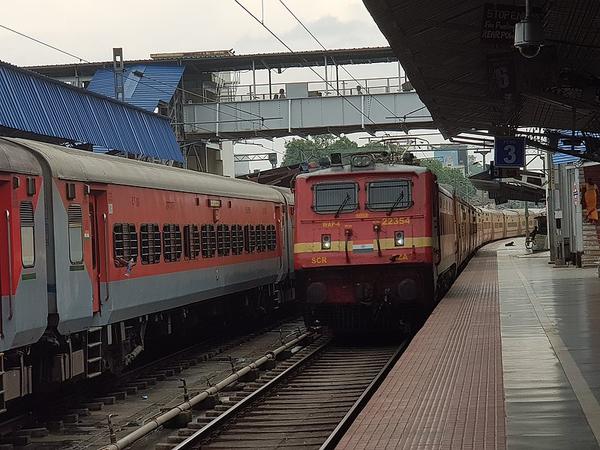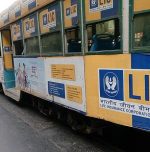Concerns about Kavach’s limited implementation

The recent tragic train accident in Odisha has shocked the nation, claiming nearly 280 lives and leaving over a thousand people injured.
Many are questioning whether this disaster could have been prevented if the Kavach system for train protection had been implemented.
Opposition leaders are expressing their concerns about the absence of the Kavach system on the Coromandel Express, which collided with a stationary goods train in the Balasore district.
They point out that only a mere two per cent of all trains in India are equipped with the Kavach technology, which has the potential to prevent collisions and derailments. Unfortunately, the route of the accident did not have Kavach implemented.
Currently, the Kavach system is operational in the South Central Railway zone, covering Maharashtra, Telangana, Karnataka, and Andhra Pradesh. It is also being implemented on the Delhi-Mumbai main line and the Delhi-Howrah main line as part of the Mission Raftaar initiative.
However, out of the approximately 13,169 passenger trains that run daily in India, only 65 locomotives, 1445 km of routes, and 134 stations are equipped with the Kavach system.
The Congress party claims that the low implementation rate of Kavach is a significant concern. The Indian Railways is one of the world’s largest railway networks. It should prioritize the widespread adoption of this potentially life-saving technology.
The government must take proactive measures to ensure the safety of passengers and prevent such tragic accidents from occurring.
The Kavach system is designed to prevent rail accidents caused by faulty signalling. However, experts believe that it would not have been able to prevent the Odisha train accident due to a failure in the electric interlocking system.
Nonetheless, the Kavach technology is intended to automatically apply brakes and slow down trains when it detects a potential collision or derailment.
Implementing the Kavach system on a larger scale can significantly enhance the safety of train operations across the country.
While the Kavach system may not have prevented this specific accident, its widespread implementation has the potential to prevent future mishaps by automatically applying brakes and mitigating collision risks.
The government must prioritize the expansion of the Kavach system to protect the lives of millions of train passengers in India.
Image Credit: Ravi Dwivedi, CC BY-SA 4.0, via Wikimedia Commons
You may also like
Image Reference: https://commons.wikimedia.org/wiki/File:Train_entering_Thiruvananthapuram_Central.jpg
Recent Posts
- Nutrition and lung cancer: How your diet can protect your healthDiets high in fruits and vegetables provide the body with vital nutrients that may lower cancer risk.
- CBIC to launch eligible manufacturer-importer scheme by MarchThe initiative aligns with CBIC’s broader vision of trust-based and technology-driven customs administration.
- 5C Network: AI-driven radiology transforming healthcare in IndiaAt the core of 5C’s innovation is Bionic, an AI co-pilot that assists radiologists by interpreting images alongside patient history.
- Nutrition and lung cancer: How your diet can protect your health
What’s new at WeRIndia.com
News from 700+ sources
-
Central government approval of funds for jewellery park in Coimbatore expected soon
-
OpenAI debated calling police about suspected Canadian shooters chats
-
President Droupadi Murmu refers Secunderabad Cantonment merger issue to Defence Ministry
-
Smart village offices to become knowledge hubs with modern facilities in Kerala, says Minister K. Rajan
-
Infiltrators will be removed from voter list, country in 5 years: Shah
-
Non-payment of rent forces school students onto roads: Harish Rao
-
WeRIndia – A News Aggregator
Visit werindia.com for all types of National | Business | World | Politics | Entertainment | Health related news and much more..










Leave a Reply